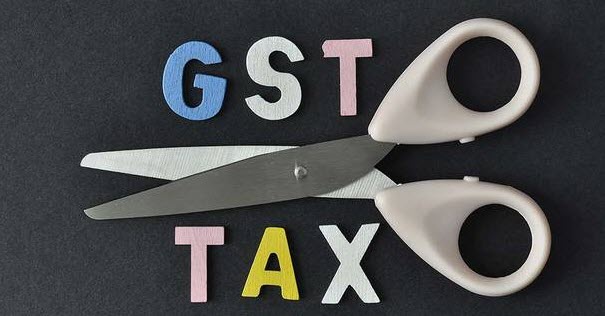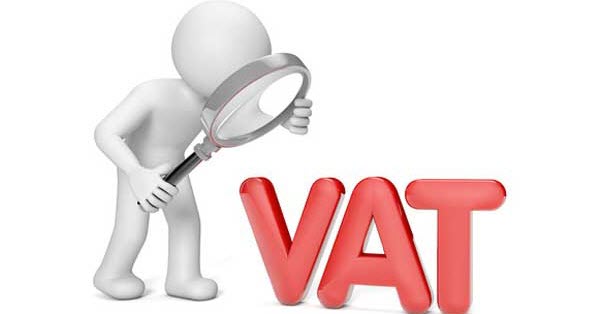Analyse How will GST Impact your Business?
Introduction
1. Every organization is very eager to know the impact on his business on account of levy of GST. The impact can be divided into two parts namely;
- Financial
- Procedural
Financial Impact of GSTThe financial impact arises on account of subsuming of tax into GST and the availability of credit on some of the taxes which was not available earlier. The credit of Octroi, Entry Tax, Luxury Tax was not available. All these taxes will subsume in GST.
2. The factors which will have bearing on financial impact, are:

| (a) | Saving arising from non-payment of Octroi, Entry Tax, Luxury Tax, etc. | |
| (b) | Non-availability of credit of Central Sales Tax (CST) (credit on IGST will be available) | |
| (c) | Non-reversal of credit under Rule 6 of the Cenvat Credit Rules, 2004 on trading activities | |
| (d) | Carrying out process which does not amount to manufacture | |
| (e) | Payment of tax on margin of wholesalers and retailers | |
| (f) | Refund of accumulated credit on account of inverted duty structure | |
| (g) | Credit of VAT paid on inputs available to service providers) | |
| (h) | Non-levy of entertainment tax | |
| (i) | Tax on Profit by wholesalers and retailers | |
| (j) | Increase in rate for service sector | |
| (k) | Pruning of exemption list | |
| (l) | Conclusion |
These factors are discussed in following paras.
Saving arising from non-payment of Octroi, Entry Tax, Luxury Tax, etc.
2.1 The local bodies like Gram Panchayat, Municipal Corporation, Municipal Committee, etc. normally enact the law for levy of octroi duty/local body tax for goods entering in the specified area. Many States have abolished octroi/local body tax and imposed entry tax. These taxes increase the cost of bringing the materials inside the specified area. The said octroi payment made on goods is not available as a credit also. The indirect effect of such levy is that:
| (a) | Most of the godowns are constructed outside octroi limit; | |
| (b) | The vehicles have to wait at Octroi Naka for hours together for payment of octroi. |
The octroi will be abolished from the appointed date i.e from 01/04/2017. Therefore, the cost of procuring the material will reduce. It will heavily benefit the transporters, as the turn-around of vehicles will considerably increase, as vehicles will not have to wait at Naka.
Non-Availability of Credit of Central Sales Tax (CST) and Availability of Credit on IGST
2.2 The Central Sales Tax is levied under the CST Act, when the movement of goods in pursuance of a contract is Inter-State. The CST is a cost to the Company as the credit of CST is not available. The indirect impact of the levy of CST was:

| (a) | Every State have created a check post at the border; | |
| (b) | The Companies have opened depots in each State. Sometimes distance between the two depots are hardly 25-30 kilometres. For example, there are many Companies who have depots in Delhi, Faridabad (Haryana) and Ghaziabad (UP); |
These depots are opened basically to save CST. The CST now will be abolished and every Inter-State transfer of goods will attract IGST. The credit of IGST will be available. Therefore, there may not be the need for so many depots and also appointment of clearing & forwarding agents, etc. The Company may have to think of re-organizing the depots.
Non-Reversal of Credit Under Rule 6 of the Cenvat Credit Rules, 2004 on Trading Activities
2.3 As per the definition of exempted service given in Rule 2(e) of the Cenvat Credit Rules, 2004, the trading is considered as an exempted service. Therefore, Rule 6 of the Cenvat Credit Rules, 2004 provides for formula for quantifying the amount of reversal of credit availed on inputs and input services to the extent attributable to trading activities. The trading activities will now attract GST. The Company will have to pay GST on the value of goods sold. Therefore, there will be no reversal of credit on inputs and input services attributable to trading activities.
Carrying Out Process Which does not Amount to Manufacture
2.4 There are many companies who carry out the process which does not amount to the process of manufacture as per section 2(f) of the Central Excise Act, 1944. Therefore, they do not pay excise duty on the products cleared by them.
Many companies carry out the process of assembly/knitting at the depot. Since this process does not amount to the process of manufacture, no duty is payable on the value increased due to assembly/knitting process. The incidence of GST is on supply. Therefore, even if the process does not amount to the process of manufacture, the GST will be payable on enhanced value. Thus, on value addition made on depot due to carrying out any process, the GST will be payable. Many companies may not be able to pass on the credit, as they supply the goods to companies engaged in transmission of electricity. If there is no GST payable on transmission of electricity, then the credit on GST paid on inputs and input services to such companies will not be available.
Payment of Tax on Margin of Wholesalers and Retailers
2.5 The wholesalers and retailer’s resell the goods. They are paying VAT leviable by the State Government on the value at which goods are sold. The VAT Act does not permit the credit of service tax paid on input service. The tax on input service is payable to Central Government and is levied as per the provisions contained in Chapter V of the Finance Act, 1994. The supply of input services will now attract GST. The wholesalers and retailers will now be entitled to the credit of GST paid and therefore they will be benefited to this extent. The wholesaler and retailer will have to pay GST on margin also.
Refund of Accumulated Credit on Account of Inverted Duty Structure
2.6 In many cases, the duty payable on the finished goods is less than the credit available to the manufacturer. For example, the duty payable on pharmaceutical products is 6% whereas the inputs like bulk drugs, packing materials, etc. attract duty @ 12.5%. Thus credit availed on inputs remains accumulated with the manufacturer of the pharmaceutical products. The credit cannot be used as credit on inputs and input service is higher than duty paid on finished goods. The Section 38(2) of the GST Act specifically provide for refund of such un-utilized credit of duty. This will definitely reduce the cost of production of such products.
Credit of VAT Paid on Inputs Available to Service Provider
2.7 The current rate of tax payable on services provided is fifteen per cent. In many cases like construction, abatements have been granted for determining the taxable value. The tax is payable on abated value. The VAT is also payable on some of the inputs. Currently the credit on VAT paid is not available to the service provider. Under the GST the credit of SGST paid will be available to the service provider. Therefore, the service provider shall ensure that the invoices are obtained for procurement of inputs and such invoice indicated the VAT element separately.

Non-Levy of Entertainment Tax
2.8 The entertainment tax is levied by the State Government on various entertainment events including exhibition of films in theatres. In some of the States the rate of entertainment tax is as high as 40%. In GST the rate of tax is bound to come down and may be in the range of 18% to 20%. This will substantially benefit the entertainment industry.
Tax on Profit by Wholesalers and Retailers
2.9 The wholesalers and retailers make profit on resale of goods. They pay VAT on the sale price of the goods. They do not pay excise duty on the value addition that is profit on sale of goods made by them, as the process carried out by them does not amount to the process of manufacture. In GST the incidence of tax will be on supply of goods. Therefore, GST will be payable of sales price of goods. They will also be entitled to the credit of GST paid on the inward supplies. The record keeping by them will have to be substantially modified in order to capture the availability of credit.
Increase in Rate for Service Sectors
2.10 Currently service tax of 15% including Swachh Bharat Cess (SBC) and Krishi Kalyan Cess (KKC) is levied. The expected rate in the GST may be 18%. Therefore, the incidence of tax for the person rendering services are likely to increase. The exact increase in the incidence of tax will be known only after the rates are notified. As against this, the service provider will also get the credit of VAT paid on the inputs as mentioned in para 19.8.
Pruning of Exemption List
2.11 Currently the notifications have been issued under the Central Excise Act, 1944 and service tax exempting various goods and services from payment of duty/tax. Similarly, the exemptions have been granted to the various products from payment of VAT. There have been lot of discussion on pruning of the exemption list. Now there will be uniform exemption under CGST and SGST. Thus only one exemption list, exempting both from CGST and SGST will be issued.
As per the various statements of the Ministry of Finance, the list will be heavily reduced. If any exemption is removed, the incidence of tax on the said goods will increase the price of the goods.
Conclusion
3. The impact of the above factors on each of the organizations will vary. It is up to the organization to determine the impact of each of the factors on their finance and re-arrange the business in order to ensure that the adverse impact is minimized.
Leave A Comment